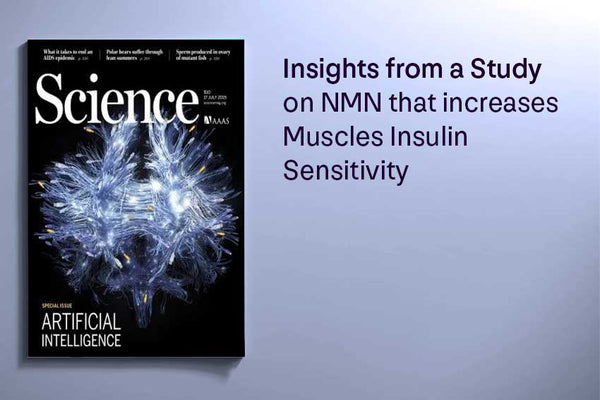
Scientists are continuously researching ways to combat the effects of aging, with a key focus on the role of specific molecules in this process. One such molecule that has gained considerable attention is nicotinamide adenine dinucleotide (NAD+), a coenzyme involved in various biological processes, including energy metabolism and cell maintenance. A study published in Science in 2021, highlighted the positive impact of a molecule named Nicotinamide mononucleotide (NMN), a precursor in the synthesis of NAD+, on metabolic function in specific groups of women. The study can be found here.
Researchers at Science conducted a 10-week, randomized, placebo-controlled, double-blind trial to evaluate the effects of NMN supplementation on metabolic function in postmenopausal women with prediabetes who were overweight or obese. The study's results demonstrated that NMN supplementation significantly increased muscle insulin sensitivity and insulin signaling.
Throughout the trial, researchers used a method known as the hyperinsulinemic-euglycemic clamp to assess insulin-stimulated glucose disposal. This method involves maintaining constant high insulin levels while adjusting the glucose infusion rate to keep blood glucose levels constant, allowing for the measurement of the body's efficiency in removing glucose from the circulation. The results showed an increase in glucose disposal and insulin signaling [indicated by increased phosphorylation of protein kinase AKT and mechanistic target of rapamycin (mTOR)] in the group receiving NMN supplementation, compared to the group who were given a placebo.
In addition to these promising results, the NMN supplementation led to up-regulation of the expression of the platelet-derived growth factor receptor β and other genes connected to muscle remodeling.
These results provide critical proof that NMN has the potential to combat metabolic dysfunction, a common issue associated with obesity and prediabetes. The benefits observed in this study could be instrumental in mitigating age-related metabolic disorders and potentially lead to improved longevity.
However, it’s crucial to note that while the results are promising, this was a relatively small-scale trial, and further research is needed to solidify these findings and explore any potential side effects of long-term NMN supplementation in larger population samples.
Key Takeaways:
- Nicotinamide mononucleotide (NMN), a precursor to NAD+, increased muscle insulin sensitivity and insulin signaling in postmenopausal women with prediabetes who were overweight or obese.
- The increase in glucose disposal and insulin signaling was assessed using the hyperinsulinemic-euglycemic clamp method.
- NMN supplementation up-regulated the expression of seed growth factor receptor β and other genes related to muscle remodeling.
- These results indicate that NMN could help mitigate age-related metabolic disorders and potentially contribute to improved longevity.
- More research is needed to confirm these findings and explore potential long-term side effects in larger population samples.
